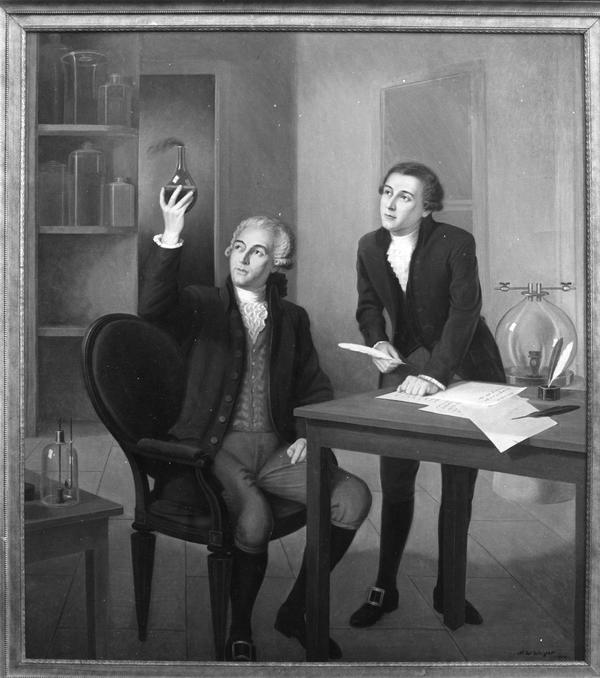Hagley Museum and Library is thrilled to have received a gift of the personal library of science books collected by Éleuthère Irénée du Pont de Nemours (1771-1834), the founder of the DuPont Company. The library was generously donated by the daughters of Irénée du Pont, Jr. (1920-2023) and had been kept for nearly a century at the family's Granogue estate in Delaware. Some of the volumes accompanied the du Pont family during their emigration from France to the United States in late 1799. With nearly every work published in French—the language of science during the late eighteenth century—the collection of 70 volumes describes several fields of science, better known as natural philosophy during the Age of Enlightenment.
 E. I. du Pont studied with Antoine-Laurent de Lavoisier (1743-1794), a French nobleman and scientist central to the revolution in chemistry, whose work made science more quantitative and who is noted for discovering the role of oxygen in combustion. He is credited with teaching the young du Pont how to manufacture black powder. Du Pont excelled in his studies and developed a lifelong interest in science.
E. I. du Pont studied with Antoine-Laurent de Lavoisier (1743-1794), a French nobleman and scientist central to the revolution in chemistry, whose work made science more quantitative and who is noted for discovering the role of oxygen in combustion. He is credited with teaching the young du Pont how to manufacture black powder. Du Pont excelled in his studies and developed a lifelong interest in science.
His science library was likely collected over years as his business and personal interests developed. Not surprisingly, the subject of chemistry takes up over a fifth of the collection (16 of 70 volumes). Yet, du Pont’s broad interests and practical bent are also indicated, from more academic topics like geometry (6 vols.), cosmology (5 vols.), astronomy (5 vols.), and mathematics (7 vols.) to areas more readily applied to his business undertakings, like physics and mechanics (12 vols.), hydrodynamics (3 vols.), economics (8 vols.), and mining and mineralogy (11 vols.). Ship construction and textile dying are also represented. Their authors include many influential scientists and mathematicians of the day: Joseph-Louis Lagrange, Willem Jacob ‘s Gravesande, Jean-Baptiste Lamarck, Pierre-Simon Marquis de Laplace, Leonhard Euler, and others.
Most of these volumes include du Pont’s personal bookplate, and many contain his margin notes, through which readers can see du Pont engage with the scientific minds and ideas of his day. The E. I. du Pont de Nemours science library is currently being conserved and cataloged and will soon be available for research.
For more information on the conservation process for the E. I. du Pont de Nemours science library materials, read our companion piece: Sometimes It's the Little Things: Finding the Beauty in 18th Century Utilitarian Bindings.
Erik Rau is the Director of Library Services at Hagley Museum and Library
